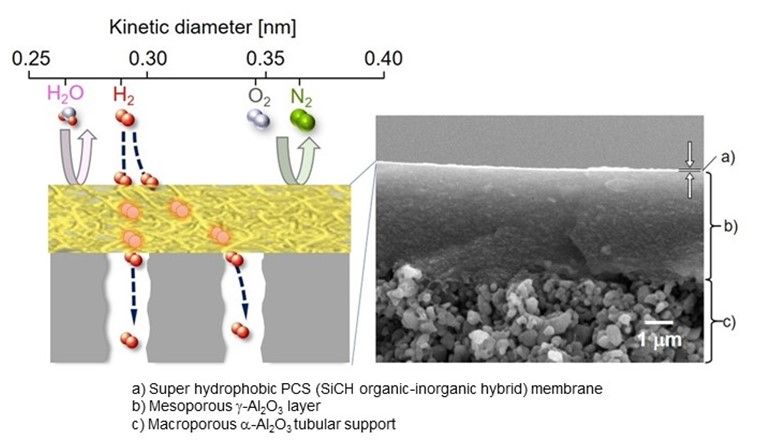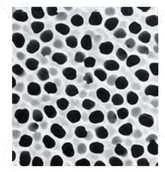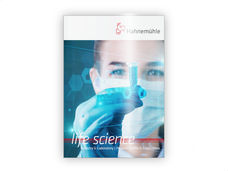Novel hydrogen fuel purification membrane paves the way for greener future
Researchers develop a novel membrane that efficiently purifies hydrogen fuel from a mixture of gases
hydrogen has been hailed as the 'fuel of the future' owing to several reasons. First, compared to the conventionally used hydrocarbons, hydrogen exhibits higher energy yield. Second, the commercial use of hydrogen fuel, which yields only water as a byproduct product, would help mitigate the imminent global warming crisis by reducing the use of exhaustible and polluting fossil fuels. Thus, ongoing research has been focusing on efficient and environment-friendly ways to produce of hydrogen fuel.

A cross-sectional image of selective hydrogen gas permeation in a super hydrophobic membrane formed on a porous tubular support.
Picture courtesy: Yuji Iwamoto from Nagoya Institute of Technology
Solar hydrogen production through photoelectrochemical (PEC) water-splitting reaction is an attractive "green" method of hydrogen fuel production, owing to its potential for high conversion efficiency, low operating temperatures, and cost-effectiveness. However, efficient separation of hydrogen gas from a mixture of gases (called "syngas") under different environmental conditions, has proven to be a challenge. A recent paper published in the journal Separation and Purification Technology seeks to address this challenge. In this study, a group of researchers from Nagoya Institute of Technology, Japan, led by Professor Yuji Iwamoto, in collaboration with researchers in France, successfully characterized a novel membrane that allows highly selective separation of hydrogen gas generated from the PEC reaction. Prof. Iwamoto says, "Membrane separation is attractive as a low-cost hydrogen gas purification technology. However, current techniques face several challenges, for example, water-induced swelling with polymer membranes and lower hydrogen permeance with metal, polymer, and supported liquid membranes. "
The researchers first developed an organic-inorganic hybrid polymeric membrane, primarily consisting of a polymer called "polycarbosilane" (PCS) formed on an aluminium oxide (Al2O3)-based porous support. Prof. Iwamoto further explains, "By using high-molecular-weight PCSs with a melting point above 200°C, we showed that a superhydrophobic PCS membrane could be deposited on a mesoporous γ-Al2O3-modified macroporous α-Al2O3 tubular support. "
After successfully developing the PCS membrane, the researchers tested it under PEC reaction conditions. As hypothesized, the PCS membrane showed high hydrophobicity. Moreover, under the flow of a simulated highly humid gas mixture at 50°C, the PCS membrane exhibited excellent hydrogen selectivity. Further analysis revealed that the preferential hydrogen permeation through the PCS membrane was governed by the "solid state diffusion" mechanism. Overall, irrespective of the ambient environmental conditions provided, the PCS membrane exhibited efficient hydrogen gas separation.
With the development and characterization of this new PCS membrane, it is inevitable that its commercial adoption will not just facilitate the use of hydrogen fuel for energy needs but also curb the use of non-renewable fossil fuels. Prof. Iwamoto concludes, "With this technological development, we expect great progress in environmental-friendly and sustainable hydrogen production ."
Original publication
Other news from the department science
These products might interest you

Anopore™ by Cytiva
Precise filtration made easy with Anopore inorganic membranes
The aluminum oxide filter membrane that can increase the purity or yield of your analyte

Hahnemühle LifeScience Catalogue Industry & Laboratory by Hahnemühle
Wide variety of Filter Papers for all Laboratory and Industrial Applications
Filtration Solutions in the Life Sciences, Chemical and Pharmaceutical Sectors

Get the chemical industry in your inbox
By submitting this form you agree that LUMITOS AG will send you the newsletter(s) selected above by email. Your data will not be passed on to third parties. Your data will be stored and processed in accordance with our data protection regulations. LUMITOS may contact you by email for the purpose of advertising or market and opinion surveys. You can revoke your consent at any time without giving reasons to LUMITOS AG, Ernst-Augustin-Str. 2, 12489 Berlin, Germany or by e-mail at revoke@lumitos.com with effect for the future. In addition, each email contains a link to unsubscribe from the corresponding newsletter.




























































